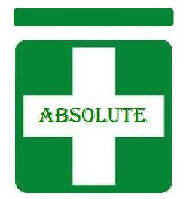15 Dec 2010, Ref: 1011083

First Employer Fined $20K for Death of Worker from Heat
Stroke
The sole proprietor of a company was fined S$20,000 for
failing to implement adequate measures to protect his
workers from heat stress.
On 25 April 2009, the worker was involved in fabrication
work in an open yard. He collapsed after working under the
sun (average ambient temperature was about 32.9 degrees
Celsius) for five hours within the yard. He died of
heatstroke 4 days after the incident.
Investigations revealed that the deceased worker was from
north-east China where the average annual temperature was
between 6 and 11 degrees Celsius. It was his second day
working in Singapore and he was likely not adjusted to the
Singapore climate. MOM’s investigations revealed that the
company did not take the necessary measures to ensure the
workplace safety and health of its employees,
this contributed to the death of the worker.
Singapore's Commissioner for Workplace Safety and Health, Er.
Ho Siong Hin, said employers should be aware and more
mindful of the effects of heat exhaustion on workers,
especially those who were used to a cooler climate.
Managing Heat Stress at the Workplace
Singapore’s hot and humid weather can put workers at an
increased risk of heat stress and heat stroke, and this may
lead to serious health consequences. To prevent such
incidents, the Workplace Safety and Health Council urges
companies to implement a programme to better manage heat
stress at workplace. These measures should:
- Ensure that the new workers are acclimatised over at least
one week by increasing workload and time spent gradually;
- Encourage alternate work and rest periods, such as five
minutes' rest for every 25 minutes worked;
- Allow work in the open to be scheduled in the early
morning or late afternoon, when it is cooler.
More details are available in the WSH Council’s “Managing
Heat Stress at the Workplace” Guideline. It highlights the
factors which contribute to heat stress and recommends
practicable measures for both employers and employees to
reduce the risks of developing heat-related illnesses. The
Guideline also includes a checklist to help evaluate the
risk of heat stress. Please click
HERE for the Guideline.
 Absolute Safety and engineering
Absolute Safety and engineering Absolute Safety and engineering
Absolute Safety and engineering